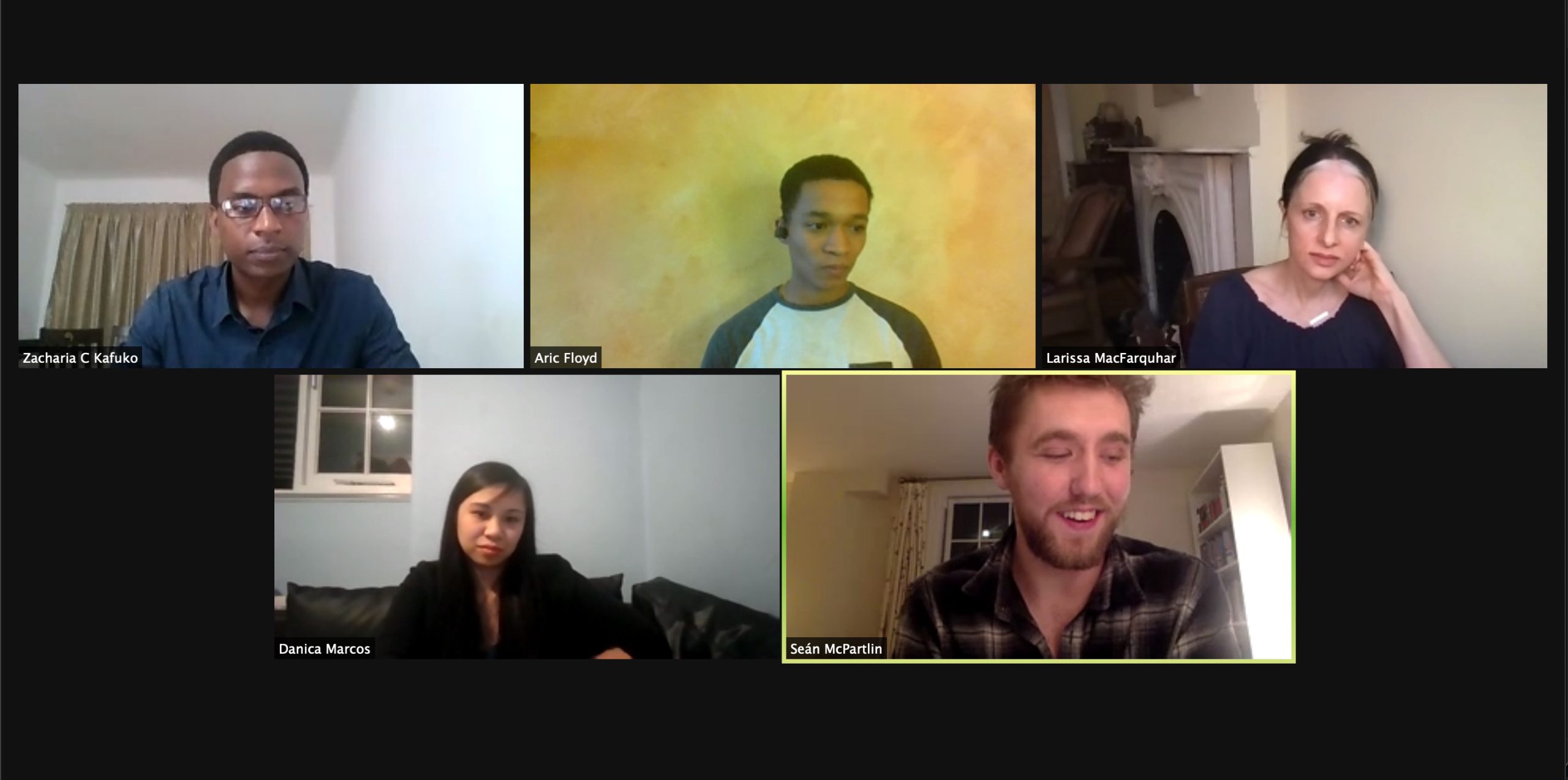Four people who volunteered to be injected with coronavirus to increase the speed of vaccine trials advocated for the use of human challenge vaccine trials during a Tuesday event.
Volunteers Danica Marcos, Zacharia Kafuko, Aric Floyd and Seán McPartlin are members of 1Day Sooner, an organization that promotes the use of human challenge trials to speed up the deployment of effective COVID-19 vaccines. (The four haven’t been injected with coronavirus — yet.)
In contrast to conventional trials that involve testing the effectiveness of a vaccine by giving half of the participants the vaccine and instructing them to live their lives as normal, human challenge trials involve injecting participants with the virus to study their reactions in comparison to a control group who has not been vaccinated. Human challenge trials accelerate development by allowing researchers to study the effectiveness of vaccines in a more controlled environment.
The tension between challenge trials’ ability to speed up vaccine development and the risks it willingly poses to participants has spurred international debate on the subject. And with vaccine rollouts underway, critics say that these trials are no longer necessary and create an unjustifiable risk of infecting healthy people with COVID-19.
Most countries have opted to go the more traditional clinical trial route instead, although the United Kingdom’s government announced on Oct. 20 that the first human challenge trial for COVID-19 would happen in London this year if approved.
Kafuko does not agree with the critics. He said that, so long as a person understands all available information about the trial and still wants to take the risk, “bio-ethics should be looking at the bigger picture” as opposed to automatically deeming the process unethical.
Floyd, another volunteer for the trial, added that as long as the free will of participants is being respected, “we really ought to consider all of the options available to us.”
Floyd analogized the situation to firefighters who risked their lives to put out the wildfires that blazed in California in 2020 and medical first responders who are working on the frontline at hospitals during the pandemic. Society regularly doesn’t question the risks people take in their jobs for the greater good, he said.
He added that the idea of volunteering to be injected with a virus is off-putting to many people because “that’s no one’s job in the real world,” so people are not used to it.
“If you’re okay with your brother being a firefighter or your aunt being a doctor, it seems like it’s a straightforward decision to say it makes sense for me to sign up and make a small risk for the greater good,” he said.
Marcos said having to attend her grandfather’s funeral on Zoom because of the pandemic motivated her to volunteer for a human challenge trial.
Marcos said she wants everyone to be vaccinated so they can travel, celebrate with each other and say last goodbyes to loved ones. While her family initially was not happy with her decision to volunteer for the trials, she said that after speaking with them, they understood how important this decision is to her.
“It’s not just about the people who are dying from this virus,” she said. “It’s also the people who are left behind — the people whose lives are ruined, the people who can’t even grieve properly.”
All four said that the risk of infecting people with COVID-19 deliberately was far outweighed by the number of people the challenge trials could help. For McPartlin, a co-founder of Effective Altruism Ireland, volunteering for vaccine trials is an opportunity to help during a time where there are not many options to do so.
“Even if there’s a small chance that doing this would make things go better — would make the pandemic end — it’s worth pretty substantive risks to do it,” he said
In addition to COVID-19 taking the lives of millions of people, Zijian Chen, the director of Mount Sinai’s recovery center, estimated that around 10% of COVID-19 patients experience long-term symptoms that can last for months after the diagnosis. A study conducted in Ireland also found that more than half of COVID-19 patients reported experiencing fatigue 10 weeks after the diagnosis.
“More than two million people are dead. I know maybe that sounds like a number, but these are actually families affected. These are human beings that have lost life,” Kafuko said. “If you are willing to help someone else — to save their life — then why not do it?”
McCoy Family Center for Ethics in Society sponsored the event, with Larissa MacFarquhar, staff writer for The New Yorker, as the moderator.
Contact Malaysia Atwater at matwater ‘at’ stanford.edu.
